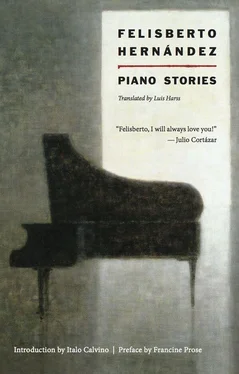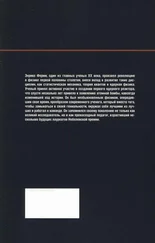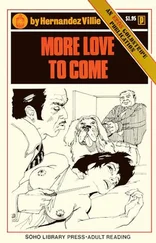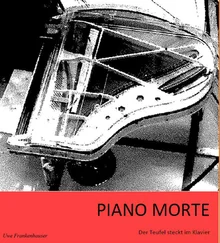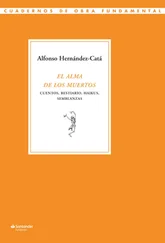Felisberto Hernandez - Piano Stories
Здесь есть возможность читать онлайн «Felisberto Hernandez - Piano Stories» весь текст электронной книги совершенно бесплатно (целиком полную версию без сокращений). В некоторых случаях можно слушать аудио, скачать через торрент в формате fb2 и присутствует краткое содержание. Год выпуска: 2014, Издательство: New Directions, Жанр: Современная проза, на английском языке. Описание произведения, (предисловие) а так же отзывы посетителей доступны на портале библиотеки ЛибКат.
- Название:Piano Stories
- Автор:
- Издательство:New Directions
- Жанр:
- Год:2014
- ISBN:нет данных
- Рейтинг книги:4 / 5. Голосов: 1
-
Избранное:Добавить в избранное
- Отзывы:
-
Ваша оценка:
- 80
- 1
- 2
- 3
- 4
- 5
Piano Stories: краткое содержание, описание и аннотация
Предлагаем к чтению аннотацию, описание, краткое содержание или предисловие (зависит от того, что написал сам автор книги «Piano Stories»). Если вы не нашли необходимую информацию о книге — напишите в комментариях, мы постараемся отыскать её.
Piano Stories
Piano Stories — читать онлайн бесплатно полную книгу (весь текст) целиком
Ниже представлен текст книги, разбитый по страницам. Система сохранения места последней прочитанной страницы, позволяет с удобством читать онлайн бесплатно книгу «Piano Stories», без необходимости каждый раз заново искать на чём Вы остановились. Поставьте закладку, и сможете в любой момент перейти на страницу, на которой закончили чтение.
Интервал:
Закладка:
But when he went into the show room after dinner that evening, the piano reminded him of a big coffin, the silence of a wake. It was a resonant silence, as if it were mourning the death of a musician. He raised the top of the piano, and, suddenly, terrified, let it fall with a bang. For a moment he stood there with his arms in the air, as if someone were pointing a gun at him, but then he rushed out into the courtyard shouting:
“Who put Daisy in the piano?”
As his shouts echoed, he went on seeing her hair tangled in the strings, her face flattened by the weight of the lid. One of the twins answered his call but could not get a word out. Finally Alex appeared:
“The lady was in this afternoon. She came to get some clothes.”
“These surprises of hers are killing me,” Horace shouted, beside himself. But suddenly he calmed down: “Take Daisy to your room and have Frank come for her first thing in the morning. Wait!” he shouted again. “Something else.” And — after he had made sure the twins were out of earshot — lowering his voice to a whisper: “Tell Frank he can bring the other doll when he comes for her.”
That night he moved to another hotel. He was given a room with a single mirror. The yellow wallpaper had red flowers and green leaves woven in a pattern that suggested a trellis. The bedspread was also yellow and irritated him with its glare: it would be like sleeping outdoors.
The next morning he went home and had some large mirrors brought into the showroom to multiply the scenes in the glass cases. The day passed with no word from Frank. That evening, as Alex came into the showroom with the wine, he dropped the bottle. .
“Anything wrong?” Horace said.
He was wearing a mask and yellow gloves.
“I thought you were a bandit,” said Alex as Horace’s laugh blew billows in the black silk mask.
“It’s hot behind this thing, and it won’t let me drink my wine. But before I remove it I want you to take down the mirrors and stand them on the floor, leaning on chairs — like this,” said Horace, taking one down and showing him.
“They’d be safer if you leaned the glass on the wall,” Alex objected.
“No, because I still want them to reflect things.”
“You could lean their backs on the wall then.”
“No, because then they’d reflect upward and I have no interest in seeing my face.”
When Alex had done as he was told, Horace removed his mask and began to sip his wine, pacing up and down a carpeted aisle in the center of the room. The way the mirrors tipped forward slightly, toward him, leaning on the chairs that separated them from him, made him think of them as bowing servants watching him from under their raised eyelids. They also reflected the floor through the legs of the chairs, making it seem crooked. After a couple of drinks he was bothered by this effect and decided to go to bed.
The following morning — he had slept at home that night — the chauffeur came, on Mary’s behalf, to ask for money. He gave him the money without asking where she was, but assumed it meant she would not be back any time soon. So when the blonde arrived, he had her taken straight up to the bedroom. At dinnertime he had the twins dress her in an evening gown and bring her to the table. He ate with her sitting across from him. Afterward, in front of one of the twins, he asked Alex:
“Well, what do you think of this one?”
“A beauty, sir — very much like a spy I met during the war.”
“A lovely thought, Alex.”
The next day he told the twins:
“From now on you’re to call her Miss Eulalie.”
At dinnertime he asked the twins (who no longer hid from him):
“Can you tell me who’s in the dining room?”
“Miss Eulalie,” both twins said at once.
But, between themselves, making fun of Alex, they kept saying:
“It’s time to give the spy her hot water.”
VII
Mary was waiting in the student hotel, hoping he would return there. She went out only long enough for her room to be made. She carried her head high around the neighborhood, but walked in a haze, oblivious to her surroundings, thinking, “I am a woman who has lost her man to a doll. But if he could see me now he would be drawn to me.” Back in her room, she would open a book of poems bound in blue oilcloth and start to read aloud, in a rapt voice, waiting for Horace again. When he failed to show up, she would try to see into the poems, and if their meaning escaped her she abandoned herself to the thought that she was a martyr and that suffering would add to her charm. One afternoon she was able to understand a poem: it was as if someone had left a door open by chance, suddenly revealing what was inside. Then, for a moment, it seemed to her the wallpaper, the folding screen, even the washbowl with its nickel-plated taps also understood the poems, impelled by something in their nature to reach out toward the lofty rhythms and noble images. Often, in the middle of the night, she switched on her lamp and chose a poem as if she could choose a dream. Out walking again the next day in the neighborhood, she imagined her steps were poetry. And one morning she decided, “I would like Horace to know I’m walking alone among trees with a book in my hand.”
Accordingly, she packed again, sent for her chauffeur and had him drive her out to a place belonging to a cousin of her mother’s: it was in the outskirts and had trees. The cousin was an old maid who lived in an ancient house. When her huge bulk came heaving through the dim rooms, making the floor creak, a parrot squawked: “Hello, milksops!” Mary told Prairie of her troubles without shedding a tear. The fat cousin was horrified, then indignant, and finally tearful. But Mary calmly dispatched the chauffeur with instructions to get money from Horace. In case Horace asked after her, he was to say, as if on his own, that she was walking among trees with a book in her hand. If he wanted to know where she was, he should tell him. Finally, he was to report back at the same time the next day. Then she went and sat under a tree with her book, and the poems started to float out and spread through the countryside as if taking on the shapes of trees and drifting clouds.
At lunch Prairie was silent, but afterward she asked:
“What are you going to do with the monster?”
“Wait for him and forgive him.”
“Not at all like you, my dear. This man has turned your head and has you on a string like one of his dolls.”
Mary shut her eyes in beatific peace. But later that afternoon the cleaning woman came in with the previous day’s evening paper and Mary’s eyes strayed over a headline that said: “Frank’s Daisy Dolls.” She could not help reading the item: “Springwear, our smartest department store, will be presenting a new collection on its top floor. We understand some of the models sporting the latest fashions will be Daisy Dolls. And that Frank, the manufacturer of the famous line of dolls, has just become a partner in Springwear Enterprises. One more example of the alarming rate at which this new version of Original Sin — to which we have already referred in our columns — is spreading among us. Here is an example of a propaganda leaflet found at one of our main clubs: ‘Are you homely? Don’t worry. Shy? Forget it. No more quarrels. No budget-breaking expenses. No more gossip. There’s a Daisy Doll for you, offering her silent love.’ ”
Mary had awakened in fits and starts:
“The nerve! To think he could use the name of our. .!”
Still grasping for words, her eyes wide with outrage, she took aim and pointed at the offending spot in the paper:
“Prairie, look at this!”
The fat cousin blinked and rummaged in her sewing basket, searching for her glasses.
Читать дальшеИнтервал:
Закладка:
Похожие книги на «Piano Stories»
Представляем Вашему вниманию похожие книги на «Piano Stories» списком для выбора. Мы отобрали схожую по названию и смыслу литературу в надежде предоставить читателям больше вариантов отыскать новые, интересные, ещё непрочитанные произведения.
Обсуждение, отзывы о книге «Piano Stories» и просто собственные мнения читателей. Оставьте ваши комментарии, напишите, что Вы думаете о произведении, его смысле или главных героях. Укажите что конкретно понравилось, а что нет, и почему Вы так считаете.
